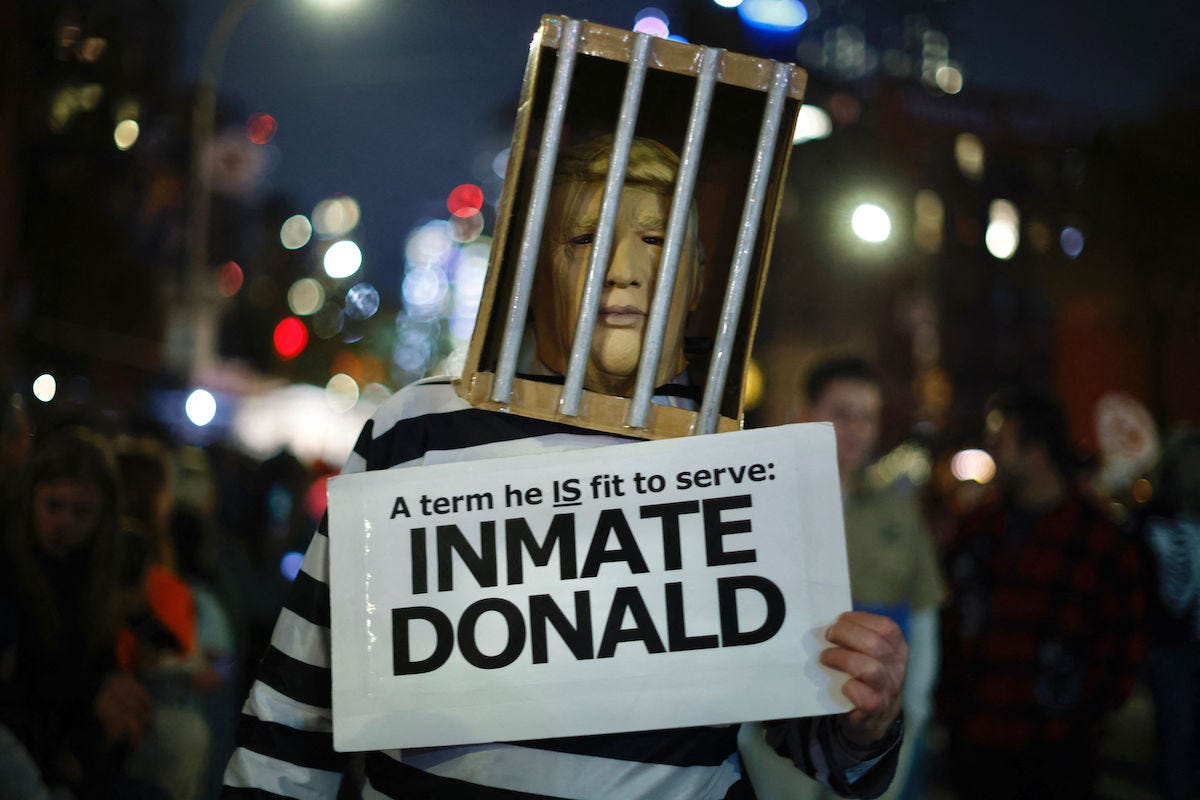No, Donald Trump Is Not Entitled To Secret Service Protection In Jail Or Prison
If his detail can't be accommodated, then it's simple: he goes into custody without it.
When Juan Merchan, the New York judge overseeing Donald Trump’s hush-money trial, held Trump in criminal contempt of court for the second time, he told Trump he’d have little choice but to order him jailed if he violates his gag order yet again. But he also made clear that he’d rather not go there.
“Going forward, this court will have to consider a jail sanction,” Merchan said from the bench. “Mr. Trump, it is important to understand that the last thing I want to do is put you in jail. You are the former president of the United States, and possibly the next president as well. There are many reasons why incarceration is truly a last resort for me. To take that step would be disruptive to these proceedings, which I imagine you want to end as quickly as possible. I also worry about the people who would have to execute that sanction: the court officers, the correction officers, the Secret Service detail among others. I worry about them and about what would go into executing such a sanction.”
It’s tiresome this deep into the halting era of Trump accountability, and this close to the election, to hear a judge admit he offers Trump leniency because of both his status and (by implication) his ability and willingness to put people’s lives in danger. At the same time, we didn’t need Merchan to say this to know it was happening. If you don’t believe me, go doxx a judge’s daughter and violate his gag order 10 times and see what happens.
But it’s especially vexing to see Merchan, who seems otherwise to be a diligent law man, pad his rationale for giving Trump special treatment by repeating the conventional wisdom that Trump’s Secret Service detail would have to accompany him to jail or prison.
This assumption gets stipulated as fact just about anytime media figures and political professionals contemplate Trump’s potential incarceration. It is so pervasive, most outlets treat it as the kind of definitional knowledge that doesn’t need to be investigated, like the date of the election or the street address of the White House. The New York Times recently published a piece with the headline, “Could Trump Go to Prison? If He Does, the Secret Service Goes, Too.” It reports that multiple agencies across multiple levels of government have begun making contingency plans for Trump’s jailing. But it also includes the claim that this layer of federal protection is mandatory—"federal law requires Secret Service agents to protect former presidents"—citing only USSS spokesman Anthony Guglielmi, who gained notoriety for participating in a smear of Cassidy Hutchinson during the House January 6 Committee investigation.
As near as I can tell the claim is just made up. Trump’s Secret Service detail is not obligatory. If agents in his entourage claim they can not work out of a prison or a jail, his protection can be withdrawn and he can be ordered into custody, where he’d be under the protection of different officers. There’s no reason for anyone to cite his protective detail as a reason he should be spared consequences.


